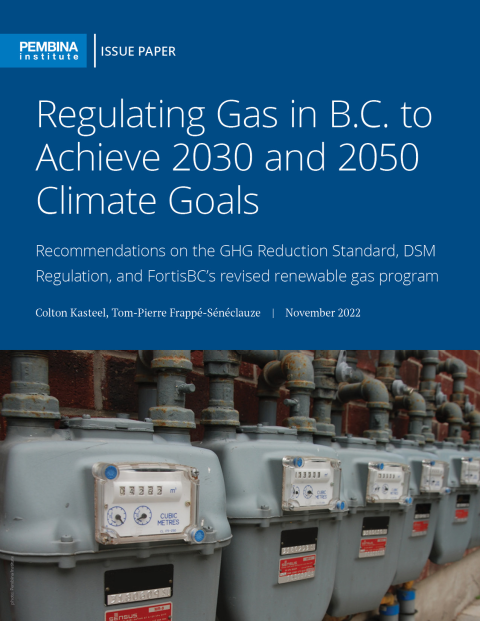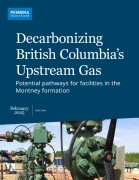Renewable gaseous fuels, including biomethane and low-carbon hydrogen, are anticipated to play a role in B.C.’s long-term decarbonization, but their origin, end-uses and level of prominence in the long-term provincial energy mix are uncertain.
The regulations developed as part of the CleanBC Roadmap to 2030, currently in design, will have a significant impact on the use of gaseous fuels and the future of the gas-distribution grid in B.C.
In order for B.C. to meet the commitments laid out in the Roadmap to 2030, FortisBC Energy (FEI), the province’s main natural gas utility, will need to present a renewed vision for its business model.
It will need to pivot from capital investments for the delivery of base heat loads, to focus instead on the production of renewable natural gas and hydrogen, the support of gas for transportation and industrial decarbonization, the delivery of deep retrofits, and the provision of low-carbon-heat-as-a-service, leveraging both electric and or hybrid high-performance systems.
The purpose of this paper is to respond to FEI’s B.C. Utilities Commission (BCUC) application and summarise the Pembina Institute’s perspective on the GHG Reduction Standard (GHGRS), proposed changes to the B.C. Demand-Side Measures Regulation, and FEI’s revised renewable gas program.
In our paper, the Pembina Institute recommends the following:
- The province introduces the ban on incentives for gas appliances by end of 2022, even if appliances were to be using 100 per cent renewable gases.
- FortisBC Energy is granted an extension to revise its 2022 Long-Term Gas Resource Plan so that it incorporates the cap on gas utility emissions announced in the Roadmap to 2030.
- Until plans are in place to meet the provinces GHGRS, utilities should only be allowed expenditures to maintain the system, develop new renewable gas resources and expand demand-side management offerings to offer deep retrofit incentives.
- The BCUC allows FEI to provide renewable gaseous fuels as a heating source for some existing buildings but at the full marginal cost, not the cost of fossil natural gas.
- The province should clarify standards and methodology for utilities to quantify the carbon content of renewable gases and track their environmental attributes.
- FEI should articulate how the gas delivery system could provide peak heat load rather than base heat load, and work with B.C. to analyse where reliance on gas for heat peaks would be most favourable.









